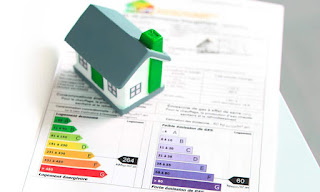What You Need to Know About Home Energy Audits
In an era where energy efficiency and cost savings are paramount, home energy audits have emerged as a valuable tool for homeowners. A home energy audit involves a comprehensive assessment of a residence's energy usage and aims to identify areas for improvement. This article will delve into the key aspects of home energy audits, their benefits, and what homeowners should expect from the process.
Understanding Home Energy Audits
A home energy audit is conducted by certified professionals who possess expertise in analyzing energy consumption patterns and identifying potential energy wastage. These auditors assess various aspects of a home, including insulation, HVAC systems, appliances, lighting, and air leakage points. By conducting a room-by-room examination, auditors can pinpoint areas that require attention to enhance energy efficiency.
Benefits of Home Energy Audits
Enhanced Energy Efficiency: A thorough audit reveals energy inefficiencies, allowing homeowners to implement corrective measures that reduce wastage and optimize energy usage. This leads to significant cost savings in the long run.
Cost Savings
By identifying areas of energy wastage and providing recommendations for improvement, home energy audits enable homeowners to make informed decisions about energy-efficient upgrades. This can lead to substantial savings on utility bills over time.
Increased Comfort
Audits help identify and rectify factors that affect indoor comfort, such as drafts, inadequate insulation, or malfunctioning HVAC systems. By addressing these issues, homeowners can enjoy a more comfortable living environment.
The Home Energy Audit Process
During a home energy audit, certified auditors employ various techniques and tools to assess energy usage and efficiency. These may include:
Visual Inspection
Auditors visually examine the house to identify signs of air leakage, insulation gaps, and inefficient appliances or lighting fixtures.
Blower Door Test
This test measures air leakage in the home by creating a pressure difference using a specialized fan and monitoring the airflow. It helps locate air leaks and assess the effectiveness of insulation.
Thermal Imaging
Infrared cameras may be used to identify areas with inadequate insulation or thermal irregularities, helping auditors pinpoint energy loss sources.
Data Analysis
Energy auditors review utility bills, analyse energy consumption patterns, and assess the efficiency of appliances and systems to gain a comprehensive understanding of the home's energy usage.
Actionable Recommendations
After completing the audit, certified professionals provide homeowners with a detailed report highlighting energy inefficiencies and suggesting actionable recommendations for improvement. These recommendations may include upgrading insulation, sealing air leaks, replacing inefficient appliances, optimizing HVAC systems, or adopting energy-saving practices.
Conclusion
Home energy audits offer homeowners valuable insights into their energy consumption patterns and provide actionable recommendations to enhance efficiency and reduce costs. By identifying areas for improvement and implementing energy-saving measures, homeowners can enjoy a more comfortable living environment while making a positive impact on the environment. Taking the initiative to conduct a home energy audit is a wise investment that leads to long-term benefits in terms of energy savings, cost reduction, and increased sustainability.


Comments
Post a Comment